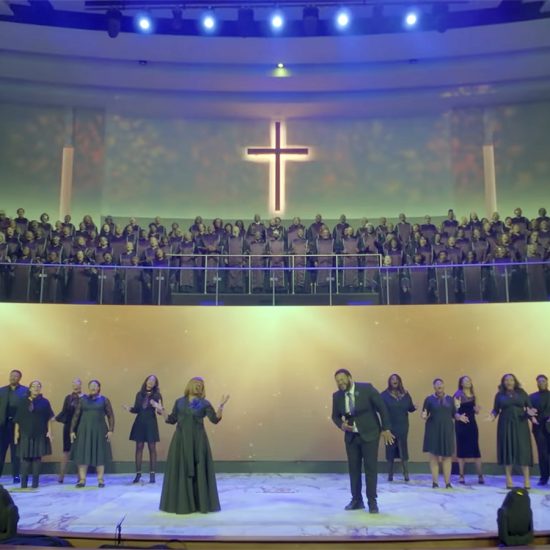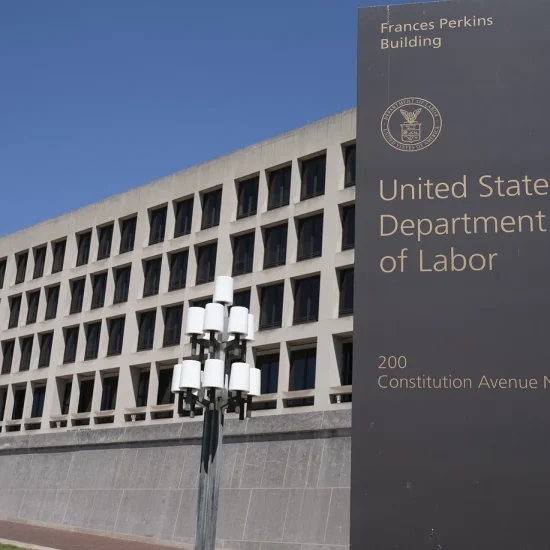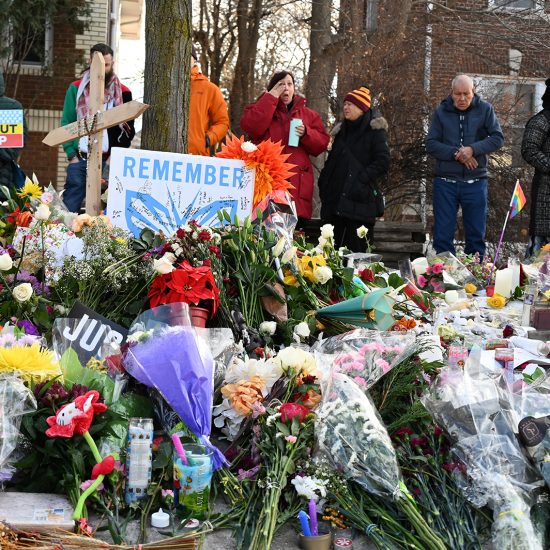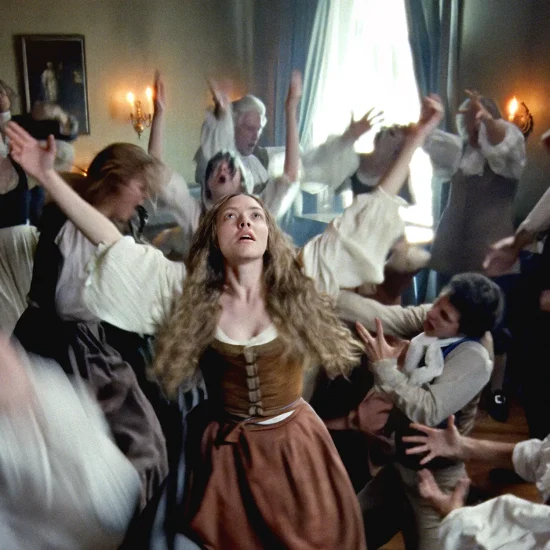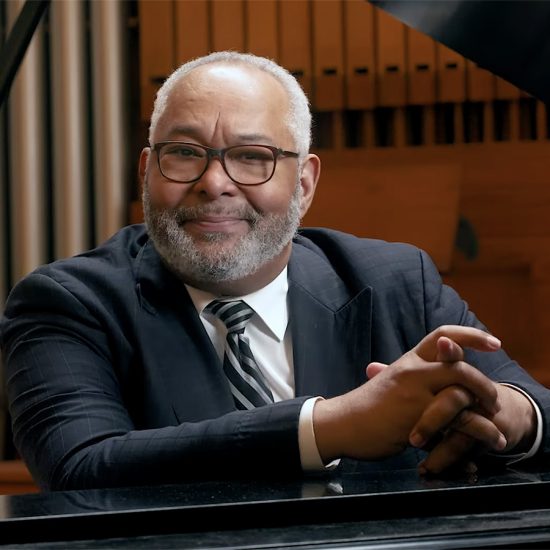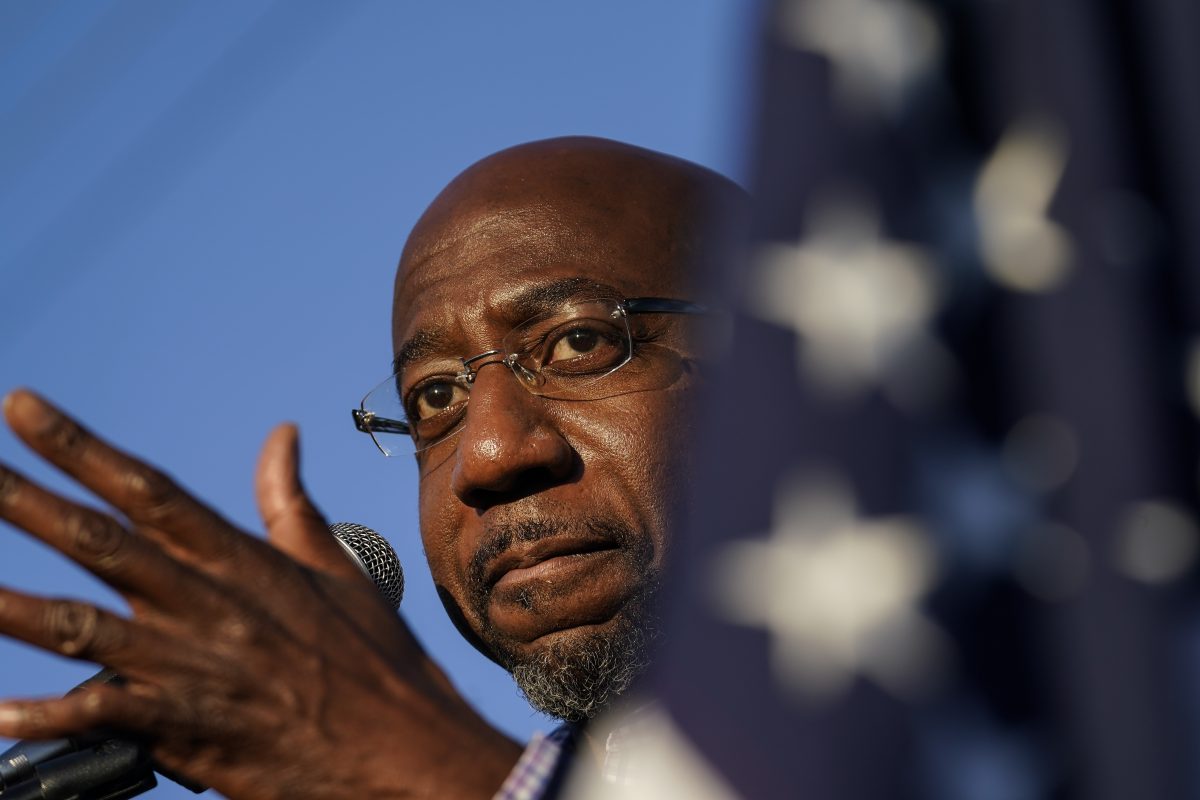
Leaders of BJC (also known as the Baptist Joint Committee for Religious Liberty) criticized political attack ads that use snippets of sermons by U.S. Senate candidate Raphael Warnock, who is also a Baptist minister. BJC Executive Director Amanda Tyler and BJC Director of Education Charles Watson Jr. discussed the issue during a Facebook Live forum Wednesday (Dec. 2) as Warnock’s sermons gain attention ahead of the Jan. 5 runoff election in Georgia that will decide which party controls the U.S. Senate.

In this Nov. 15, 2020 photo, Raphael Warnock, a Democratic candidate for the U.S. Senate speaks during a campaign rally in Marietta, Georgia. (Brynn Anderson/Associated Press)
Warnock is the pastor of Ebenezer Baptist Church in Atlanta, where both Martin Luther King Sr. and Martin Luther King Jr. served as pastors. As a Democrat, he is challenging incumbent Republican Senator Kelly Loeffler. On the same day as their election, Democrat Jon Ossoff is challenging incumbent Republican Senator David Perdue.
Over the past few weeks, Loeffler, conservative media, and some of Loeffler’s fellow Republicans like Senator Marco Rubio of Florida, have posted snippets of sermons by Warnock to attack him as allegedly unpatriotic, anti-military, or even unchristian. One line under attack came from remarks Warnock gave at a 2016 event cosponsored by BJC, which also included remarks by Tyler’s predecessor Brent Walker.
Watson, a native of Georgia, noted that BJC isn’t endorsing any candidate, but instead focusing on the religious issues in the campaign.
“We’re just talking about the race and how it’s going and the rhetoric that is around it,” Watson added. “We want to have a conversation today about how far is too far? And also, what does it mean when religious sermons are used in political ads?”
He said that while it’s not surprising to see “political candidates take snippets of anything from somebody else and try to slice it or break it off to be a negative,” he finds its particularly troubling when someone takes “a snippet of a sermon and say, ‘hey, this is something that we want to hold against you.’”
Tyler, who noted she had worked on political campaigns before coming to BJC, agreed that while candidates expect opponents to look at past comments, treating sermons this way seems more problematic. Mentioning that Christians believe the Holy Spirit inspires a pastor while preaching, she said that “there is something different about giving a sermon than giving a speech.” And she believes that religious understanding “needs to be respected.”
“When you think about sermons in particular, it’s different to me than a speech that you might give to a one-time audience or a paper that you wrote,” she explained. “The idea of pastoring a church is, you know, you’re called to that position. So, for a long period of time you develop a relationship with the people in the church. You are leading the church in a certain spiritual direction. And so, to take even one sermon — let alone one line from one sermon — out of that larger relationship in context of a pastor and their church, it can be very misleading.”
“And to fail to think about that context, I think, can lead us in a direction that really threatens religious freedom,” she added, “and threatens even that concept of a religious test. That concept of imposing in some way a religious test for public office, to say that some religious view that you hold would somehow disqualify you for public office — as some people have actually said when it comes to Reverend Warnock and his ability to be United States Senator.”

Screengrab as Charles Watson and Amanda Tyler speak during BJC’s Facebook Live forum on Nov. 3, 2020
Tyler stressed BJC will defend anyone from these types of religious test arguments since the treatment of a clergy member running for political office is “core to what religious freedom means, and that’s what we at BJC are devoted to.”
“We fight for religious freedom for all people, not just the Baptist pastors who are running for office,” she added.
Tyler also noted a double standard in the treatment of Warnock when compared to another recent political moment. Some Republicans argued people shouldn’t attack the religious faith of Amy Coney Barrett during her confirmation hearings for the Supreme Court. Tyler agreed that Barrett’s faith was “irrelevant” in assessing her as a justice just as “the fact that Reverend Warnock is a Baptist minister does not make him a better or worse candidate for the US Senate.”
Watson added that this means the question isn’t what Warnock or Barrett believe but will they govern according to the Constitution instead of their personal beliefs.
“People can have their different thoughts on issues, and your religion can inform your thoughts on issues. But are you going to uphold the Constitution?” Watson explained. Or are you going to put your God above everybody else in the United States? And that is the question.”
Religious Attacks & Race
As if political attacks on a pastor’s sermons weren’t problematic enough, Watson said he finds it even more troubling given the racial context in this case.
“We have an African American Baptist minister in Atlanta, Georgia, at Ebenezer Baptist Church. And you’re taking snippets of sermons from this person to use against him politically. I think some of it crosses the line as far as how they’re doing and the dog whistles behind it,” he said. “That’s the deeper issue.”
“The attacks that are going on Dr. Warnock now about his religious statements are some of the same attacks that were on Martin Luther King, Jr. We’re saying the same words. We’re calling somebody a radical, calling somebody a communist, calling somebody anti-American. Now, 60 years after Dr. King’s death, it’s hard to find somebody that will speak ill of Dr. King, Jr.,” Watson said.
“And I just wish we will learn from our past,” he added. “See the pattern here that’s going on. And if we’re continuing in this same pattern, that means there’s something deeper than just Republican-Democrat that’s going on here. There’s something deeper than just Ebenezer Baptist Church going on here.”
Watson and Tyler connected this treatment of King and Warnock to Christian Nationalism, the inaccurate idea that the U.S. was founded as a Christian nation and so to be a real American is to be a Christian. Thus, Watson explained, preachers like King and Warnock are not “bashing Christianity” but attacking “the White power structure” of Christian Nationalism.
“If you’re not Christian and love America the way the White power structure loves Christianity and America, then you’re othered and you’re outside of it,” he added. “That’s dangerous and we’ve seen that lead to violence, as in Mother Emanuel Church in Charleston, South Carolina. If you read Dylann Roof’s manifesto, you can see the Christian Nationalism all in it. And that’s why this is dangerous. And that’s what all of this stuff is tying together. You can’t separate it, even when you’re talking about a political race because it’s showing itself again in these political races.”

